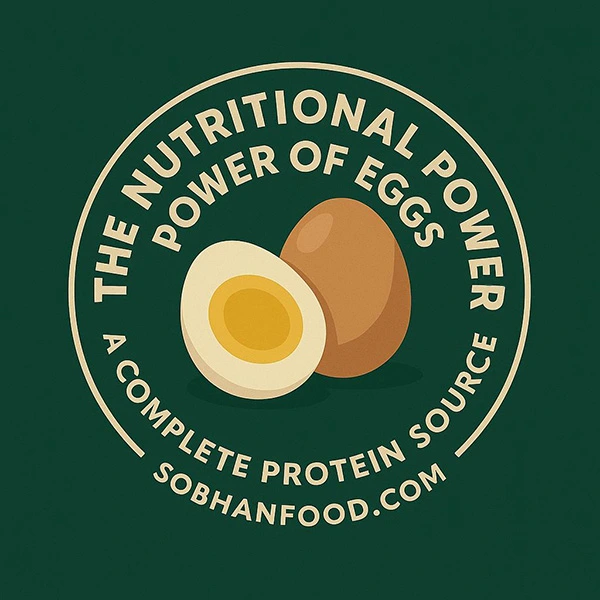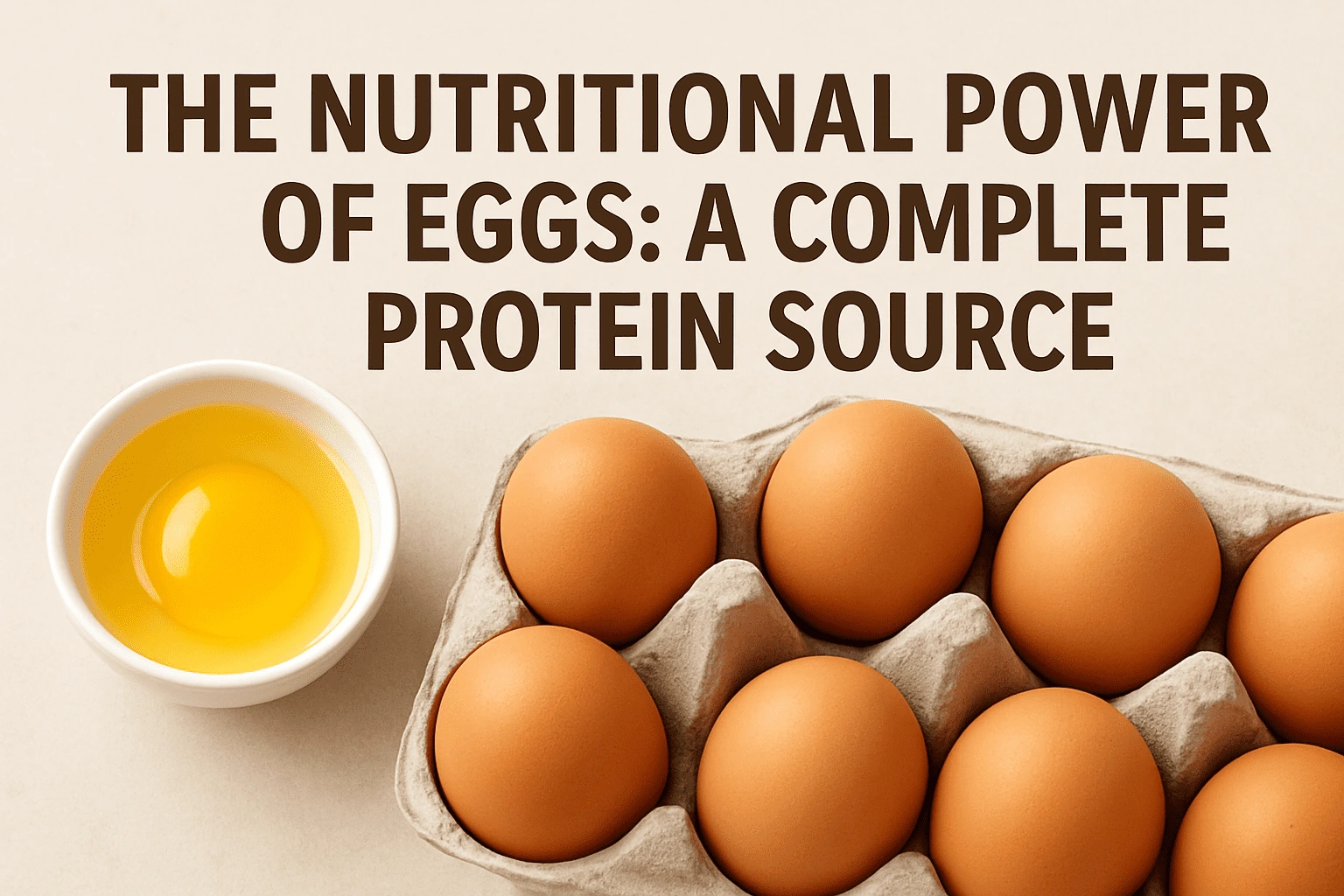Introduction
Eggs have been a staple food in almost every culture for centuries. Known as one of nature’s most perfect foods, eggs are affordable, versatile, and packed with nutrients that benefit the human body. But beyond being a breakfast classic, eggs are also recognized as a complete protein source—meaning they provide all nine essential amino acids that our bodies cannot produce on their own.
In this article, we will explore the nutritional power of eggs, their role as a complete protein, their benefits for different groups of people, and practical tips for including them in your diet.
What Makes Eggs a “Complete Protein”?
Proteins are made up of building blocks called amino acids. Out of the 20 amino acids, nine are considered “essential” because the body cannot synthesize them. A complete protein food contains all nine essential amino acids in the right proportions.
Eggs fit this category perfectly. In fact, nutritionists often use eggs as the “gold standard” for measuring protein quality in other foods. One large egg contains about 6–7 grams of high-quality protein, with an excellent balance of essential amino acids that support muscle repair, growth, and overall health.
Nutritional Breakdown of an Egg
A single large egg (about 50 grams) provides an impressive range of nutrients:
- Calories: ~70 kcal
- Protein: 6–7 g
- Fat: 5 g (mostly healthy unsaturated fat)
- Carbohydrates: <1 g
- Cholesterol: 185 mg
- Vitamin A – supports eye health
- Vitamin D – rare in foods, strengthens bones and immunity
- Vitamin B12 – essential for nerve function and red blood cell formation
- Riboflavin (B2) – helps convert food into energy
- Choline – supports brain function and development
- Selenium – a powerful antioxidant
Clearly, eggs are not just protein powerhouses—they are nutrient-dense foods that contribute to overall health.
Health Benefits of Eating Eggs
1. Supports Muscle Growth and Repair
Because eggs provide a complete protein, they are ideal for athletes, bodybuilders, and anyone trying to build or maintain muscle mass. Eating eggs after exercise helps repair muscle fibers and promotes recovery.
2. Promotes Brain Health
Eggs are one of the best dietary sources of choline, a nutrient crucial for brain development, memory, and mood regulation. For pregnant women, adequate choline intake supports the baby’s brain growth.
3. Good for Eye Health
Egg yolks are rich in lutein and zeaxanthin, antioxidants that protect the eyes from harmful blue light and reduce the risk of age-related macular degeneration (AMD).
4. Supports Weight Management
Despite being low in calories, eggs are highly satisfying. Studies show that eating eggs for breakfast can help reduce hunger, control calorie intake throughout the day, and support healthy weight loss.
5. Boosts Immunity
Eggs contain selenium and vitamins A, D, and B12, all of which play roles in strengthening the immune system and protecting against illness.
Debunking the Cholesterol Myth
For years, eggs were criticized for their cholesterol content. However, research has shown that dietary cholesterol from eggs has little effect on blood cholesterol levels for most people. Instead, saturated and trans fats are more influential in raising cholesterol.
In fact, moderate egg consumption (1–2 eggs per day) is safe for healthy individuals and may even support heart health by increasing “good” HDL cholesterol.
Who Can Benefit the Most from Eggs?
- Athletes & Fitness Enthusiasts: Eggs are an inexpensive and effective way to meet protein needs for muscle recovery and strength.
- Pregnant & Breastfeeding Women: The choline and protein in eggs support both maternal health and infant brain development.
- Children & Teenagers: Growing bodies need high-quality protein, and eggs provide it in a convenient, affordable way.
- Older Adults: Eggs help maintain muscle mass, bone strength, and cognitive function in aging individuals.
How to Add Eggs to Your Diet
One of the greatest strengths of eggs is their versatility in cooking. You can enjoy them in countless ways:
- Boiled eggs – quick, portable, and nutrient-packed snacks
- Scrambled or omelets – with vegetables for a balanced meal
- Poached eggs – a healthy option without extra fat
- Egg-based dishes – frittatas, quiches, or shakshuka
- Baked goods – essential in cakes, bread, and pastries
💡 Tip: Pair eggs with whole grains, vegetables, and healthy fats for a complete and balanced meal.
Best Practices for Egg Consumption
- Choose high-quality eggs: Free-range or organic eggs often have higher levels of omega-3 fatty acids.
- Cook safely: Always cook eggs properly to avoid foodborne illnesses like salmonella.
- Balance your diet: While eggs are healthy, combine them with other protein sources like fish, legumes, and nuts.
- Storage: Keep eggs refrigerated to maintain freshness and quality.
Conclusion
Eggs are far more than just a breakfast food—they are a nutritional powerhouse and one of the best complete protein sources available. Packed with essential vitamins, minerals, and amino acids, eggs support muscle growth, brain health, weight management, and immunity.
Affordable, versatile, and scientifically proven to be beneficial, eggs deserve their reputation as a superfood. Whether you’re an athlete, a busy professional, or simply someone looking to improve their diet, including eggs in your daily routine can be a simple and effective step toward better health.




